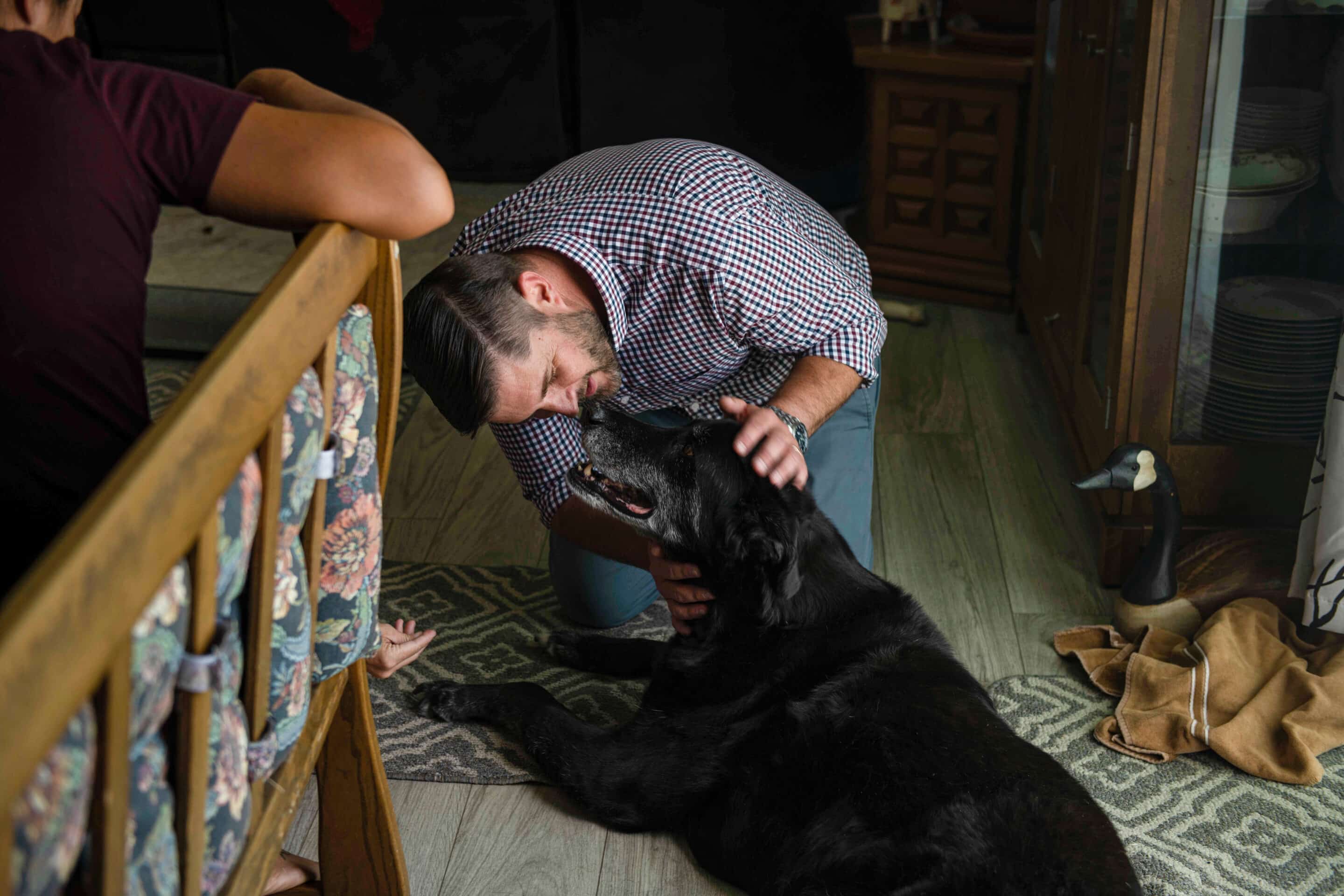I love seniors. Dogs, cats, ferrets, humans… love ‘em. While they are not all like this, they often give me a sense of calm wisdom when I am around them. Dogs are especially emotive in this way. Of course, I love puppies and kittens too, but I find that our senior pets have so much to offer and teach.
I’m a proud owner of a senior pet named Lego, a 13-year-old Benji-lookalike (visualize a small, tan and black scruffy pooch if you don’t remember Benji). I adopted him from my local shelter a decade ago, and our journey together has been transformative. From overcoming challenges to his current status as a senior dog with special needs, Lego has taught me invaluable lessons about caring for aging pets. Let’s dive into the importance of expert senior pet care by answering the question, “How often should I take my senior pet to the veterinarian?”

Caring for Aging Pets
As your beloved furry family member ages, your approach to their care naturally evolves. Long hikes may gradually turn into leisurely outings to the park, and those playful kitten zoomies give way to long cat naps in the sun. The shift from puppy and kitten food to adult fare at about one year of age is clear, but when should you start thinking about a senior diet and joint supplements? Moreover, when does your pet officially enter their senior years?
The American Animal Hospital Association (AAHA) defines five life stages for cats and dogs: Puppy/Kitten, Young Adult, Mature Adult, Senior, and End of Life. Since there’s considerable variation among species and breeds, these categories aren’t defined by specific ages. Senior status is generally determined as “the last 25% of the estimated lifespan.” For instance, a Great Dane’s senior years would commence around age six if their life expectancy is eight years, while a teacup poodle’s golden years begin at approximately age 12 if they are to live to 16.
Veterinary Care for Senior Pets
As a veterinarian, I strongly recommend seeing seniors at least every six months. With time, we shift from preventative care to proactive care. Vaccination and deworming become less frequent, and our focus turns to monitoring bloodwork, oral health, and mobility. We pay closer attention to lumps, bumps, eyesight, and hearing. Weight management and pain control are vital aspects of senior pet care. In some cases, the loss of hearing and vision, along with early dementia, can contribute to anxiety in aging pets.
Each pet is unique, and their needs vary. A small poodle might face dental issues in their middle adult years, while a larger breed like a Dane may require joint supplements earlier.

Late Senior Pet Years
As pets enter the later stages of their senior years, it’s essential to monitor their health more closely. However, we also consider how veterinary visits impact their well-being. If a terminal diagnosis is made, our priority is to keep them comfortable while minimizing stress. This is where Caring Pathways excels, offering TeleAdvice appointments, in-home quality of life assessments and hospice care.

We are Here to Support You
Your senior pet has been a faithful companion through thick and thin. Providing extra care during this stage is not only rewarding but also strengthens the bond you’ve shared. Remember that Caring Pathways is here to support you through every aspect of this special time.
Written by: Gina Singleton, DVM
Dr. Gina started her veterinary career at 16 years of age- working in a small animal hospital in Virginia. She continued to work in many veterinary hospitals in several states doing just about every job she could- receptionist, kennel staff, grooming, veterinary assistant, licensed veterinary technician, hospital manager and eventually a veterinarian. Her undergraduate work includes an Associates degree in Animal Science and Bachelors degree in Wildlife Biology. She attended Colorado State University School of Veterinary Medicine and Biomedical Sciences and graduated in 2008. Gina has worked as a Veterinarian in both Colorado and Maine and was also co-owner of Forever Home, an in home hospice and euthanasia practice in Fort Collins. Gina joined Caring Pathways in September 2020, having just moved back from Maine in August and she is more than excited to have done so. Having been in general practice for so many years, she found that her favorite part of her job was working with senior pets and their human companions. Although the end-of-life decision can be very difficult, she finds that this ultimate act of love that a human can give to their beloved pet is an honor to be a part of.

